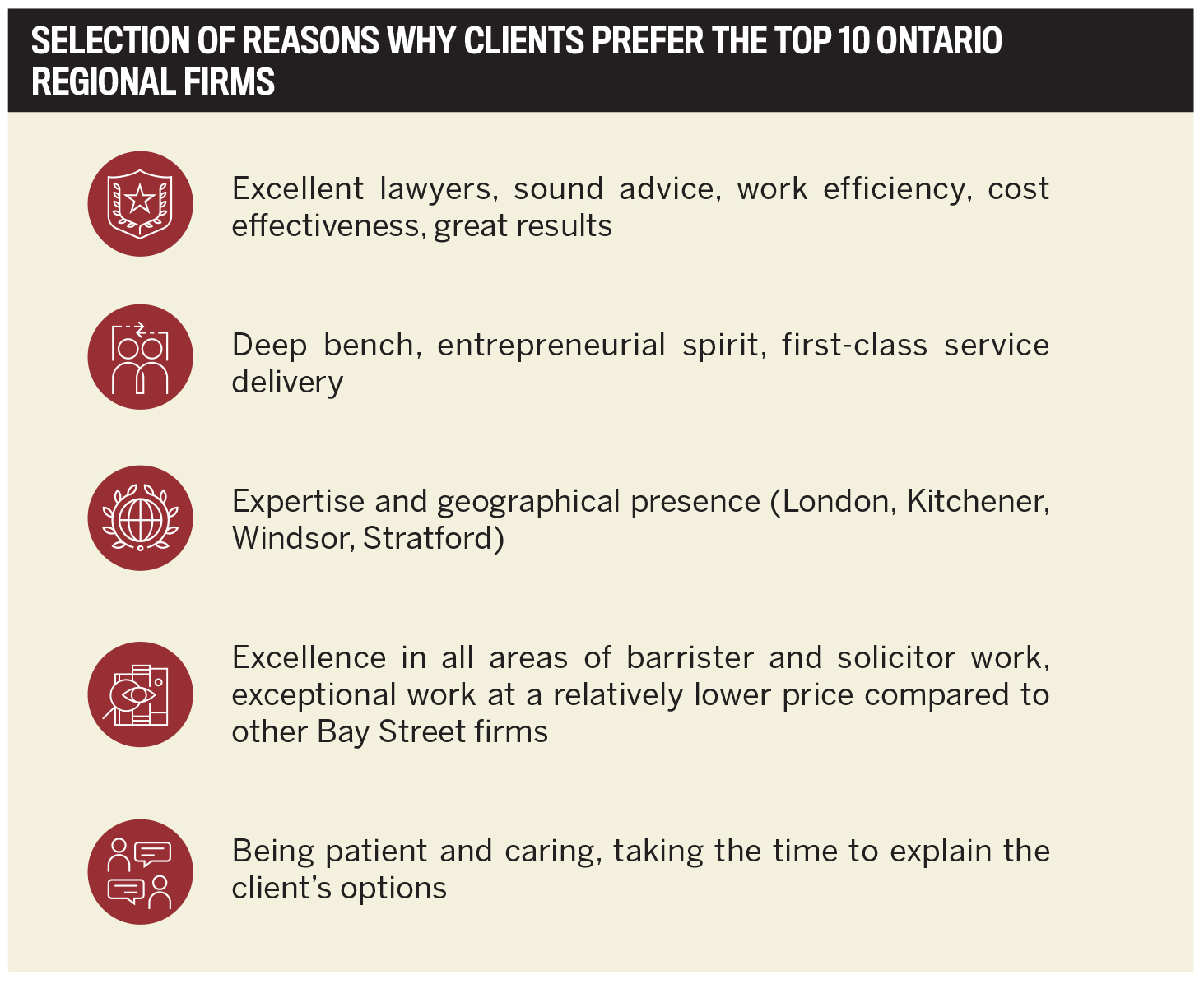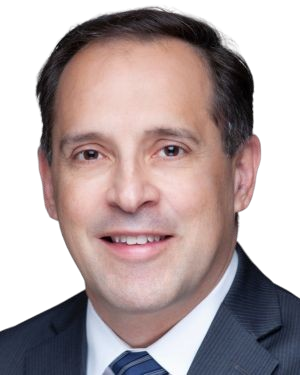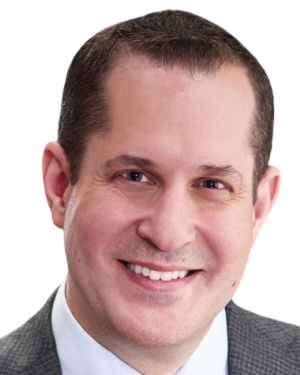

Jump to winners | Jump to methodology
Thousands of readers and respondents shared their valuable insight with Canadian Lawyer on the best law firms across the nation’s economic provincial powerhouse, which is also home to almost 40 percent of the Canadian population.
Toronto is undoubtedly the country’s most significant legal hub, and this makes earning a place on CL’s rankings a highly laudable achievement due to the fierce competition and exacting standards.
To qualify, firms had to operate exclusively in Ontario and offer a broad range of legal services, including corporate and litigation. The quantitative results were combined with the Lexpert peer survey, where applicable, and feedback from senior legal professionals.

CL is proud to present the 2025–26 ranking of the top 10 Ontario full-service regional firms after evaluating them on regional service coverage, client base, notable mandates, service excellence, and legal expertise.
A close analysis of trends and data from the feedback provided shows the five key attributes of the winning law firms:
Exceptional client service: “responsiveness, attentiveness, and a client-first approach at all levels, from partners to staff”
Legal expertise and breadth of services: “deep knowledge across a wide range of practice areas, ensuring comprehensive legal support for clients”
Quality of lawyers: “highly skilled, knowledgeable, and well-respected lawyers who deliver practical, business-minded advice”
Reputation and industry recognition: “a well-established presence in the legal community, known for excellence, integrity, and contributions through mentorship, thought leadership, and innovation”
Commitment to excellence: “prioritizes high-quality legal work, long-term client partnerships, and a culture of continuous improvement”
Torkin Manes LLP managing partner Jeffrey I. Cohen believes that a great firm is the product of great lawyers with skill sets to match.
“You can’t compromise on that. My assumption is that every firm we’re ever working opposite has great lawyers and skill sets, so doing anything below that would take us down to a service level I would never be happy with,” Cohen says.
Torkin Manes, a stalwart of CL’s prestigious list since 2011, has lived up to those words and has been ranked No. 1 in Ontario, recognized for its technical legal expertise and strategic, results-driven advice. The firm has cultivated a reputation for providing exceptional client service, taking the time to fully understand those it represents and their needs.
“What differentiates us is that you’ve got to have great skills and provide excellent service,” says Cohen. “But we firmly believe that all of that must be contextualized based on what our clients’ needs are because they can’t tell us what they need in terms of the law. We’ll tell them what the law is, but our job is to give the advice in a manner that is relevant for them.”
Another mainstay of CL’s esteemed rankings over the past decade, Pallett Valo LLP has kept its winning streak going by delivering high-quality services with a strong emphasis on value.
“We strive to know our clients, and this started in 2001 when we came up with an approach which is the right lawyer for the right client and the right type of file,” managing partner John Russo explains. “We’ve emphasized that and try to vest ourselves in our clients’ businesses.”
With a complement of approximately 90 lawyers, clerks, and staff, the Peel Region firm is a true mid-market firm, offering full service across seven practice areas and over 20 industries. A commitment to living its value system drives its success, which shows up in respect for its staff and clients.
Another differentiator is that Pallett Vallo doesn’t shield its younger lawyers from clients. Instead, the associates are encouraged to deal directly with them, reinforcing the team ethos on both sides.
Fogler, Rubinoff LLP, another fixture of CL’s celebrated list since 2011, has a strong reputation for dispensing high-quality yet cost-effective solutions. The full-service mid-size Toronto firm has expertise across multiple areas, including deep benches of experienced corporate, tax, corporate finance, real estate, and litigation lawyers. Its vast in-house capabilities enable it to deliver integrated and comprehensive solutions.
Its Indigenous practice has also grown significantly in recent years with the development of smaller, dedicated teams in specialized areas such as IP.
“It all starts with hiring the right people – associates, both homegrown and lateral, and partners,” says firm chair Eric Roblin. “We have people that not only have the necessary expertise to complete complicated matters but can do so without having to staff up a file in a manner that incurs unnecessary expense for our clients.”
Smaller teams of lawyers on matters allow for a more hands-on approach, enabling them to understand the nuances of each file, prioritize responsiveness, and keep costs down.
“A further benefit is that the smaller teams allow our younger lawyers to take on greater responsibility and have greater direct client contact earlier in their careers than they might otherwise have,” he adds. “We feel that running an efficient ship is how we can continue to provide cost-effective solutions that bring the client greater value.”


Blaney McMurtry LLP has earned a reputation for an interconnection of exceptional client service and a strong workplace culture, both of which have made the firm an enduring leader in CL’s rankings for over a decade.
The full-service firm’s practice areas run the gamut, including corporate and commercial law, commercial real estate, insurance, commercial litigation, as well as personal services such as estate, tax, and family law. It is known for being responsive and prioritizing two-way communication.
“Clients want to know that their lawyers truly understand their business, care about their goals, and are invested in achieving the right outcomes,” says managing partner Shawn Wolfson.
The firm doesn’t measure response time in hours; sometimes, it’s a matter of minutes. That approach supports a simple policy: if you’re at your desk and the phone rings, you pick it up even if you don’t have the answer yet.
“Lawyers actively ask clients about their businesses, genuinely listen to their needs, and tailor their advice accordingly,” Wolfson explains. “This has been a defining characteristic of our firm’s approach for decades.”
On the culture side, the same mindset permeates at firm-wide events, practice group gatherings, or even casual lunch conversations, as personal connections and collaboration naturally develop. The dynamic has shaped the firm’s success over its 70-year history, reinforcing a culture where relationships with clients and colleagues come first.
As a two-time top law firm in Ontario, Loopstra Nixon LLP has undergone remarkable growth, expanding its offices, practice areas, and lawyers. This has been driven by the acquisition of Macdonald Sager LLP and Feige Nawrocki LLP in 2023, along with several lateral hires, positioning Loopstra Nixon in Toronto’s 100-plus lawyer market.
“One of our strengths is being a new entrant, notwithstanding the fact that we’ve been around for over 50 years, but in some ways, we’re a very new firm,” chair Allan Ritchie says. “That allows us the freedom to reimagine what a law firm looks like at that size and create our own version.”
Because the firm’s culture and identity are evolving, lawyers can have an immediate impact as everything is open to questioning and improvement.
“The people who succeed at our firm are those who want to be on the firing line. They want to get the phone call when the chips are down,” he remarks.
Ritchie points out that the rapid adoption of virtual legal services enables the firm to instantly bring its entire team to a business community in a way it couldn’t before. This is a growth area due to the ability to base back-office operations in one location while service delivery extends across the province or anywhere clients operate.
Unlike firms that previously had to build a full-service presence in each location, Loopstra Nixon focuses on cultural alignment with new partners, access to a broad client base, and minimizing overhead costs.
“I think our success was a product of where we were in our evolution when the service delivery and consumption models changed dramatically,” adds Ritchie.
McKenzie Lake Lawyers LLP, a four-time top law firm in Ontario, has maintained high standards while expanding across Southwestern Ontario. Managing partner Matthew Villeneuve attributes its success to hiring and retaining the right people who share the firm’s client-first mentality and commitment to community connection.
The firm invests in legal talent early, bringing in first- and second-year summer students to ultimately develop them into future partners.
“We spend a lot of time investing in the community and ensuring that when we bring people in to represent McKenzie Lake and provide our services, they share that goal of putting clients first in everything we do,” Villeneuve says.
This approach means understanding clients, which requires staying connected to the communities where the firm operates. It also means continuously adapting and evolving.
“You can practise law anywhere. I can practise by myself at a smaller or bigger firm, but where will I enjoy practising law? I will enjoy it in a culture where I can walk down the hall, talk to my colleagues, and ask them about their weekend because we’re more like a family,” adds Villeneuve.
Beyond the office, the firm fosters a strong culture of community involvement, encouraging its lawyers and staff to engage in initiatives that align with its values. Examples of its ongoing community support initiatives include Ronald McDonald House and Community Fridge London.
Several strategies have been key to maintaining Torkin Manes LLP’s reputation as a full-service regional powerhouse with a deep bench of skilled lawyers:
continuously redefining what full-service means
investing in a strong, committed team
The firm's clients help shape its service philosophy. As a Toronto-based firm serving the GTA, which also handles national and international work, it listens closely to client needs. When clients repeatedly request a service the firm doesn’t offer, leadership takes notice. Rather than ignoring demand or cutting practice areas for profitability, the firm ensures that core services remain valued and respected.


Building and retaining top talent is another key factor. Over 50 percent of the firm’s partners articled there, a testament to its culture and commitment to long-term growth. Torkin Manes fosters an environment where lawyers stay because they believe in the firm’s approach.
“The expectation is clear: be a great lawyer, provide excellent service, and always consider the broader context of client needs,” Cohen says.
This philosophy extends to mentoring and training. Junior lawyers develop their skills by observing senior lawyers in action and learning how to deliver practical, client-focused advice.
“When people take pride in their work, they provide better service,” he adds. “If they feel like they’re growing into great lawyers and delivering real value, they’re engaged, and that engagement translates into happy clients. In the end, it’s a cycle: when the lawyers feel good about what they do, the clients feel it, too.”
A reputation for responsiveness, attention to detail, and a client-centred approach across Pallett Valo’s broad range of practice areas is built on three pillars:
in-house training
continuously updated client service standards
continuous feedback
The firm runs year-round internal programs to ensure all staff are aligned in legal knowledge and client service expectations. Every practice group holds strategic planning sessions to reinforce these standards.


This structured approach is enhanced by direct client feedback, with responsiveness being one of the most important standards. Lawyers return emails or phone calls within 24 hours.
“If I’m heading into a long trial, I’ll reach out to clients to let them know I may not be as responsive as I want to be at this point in time, and I inform my team, who can address any concerns in my absence,” Russo says.
With a deep bench of talented lawyers across diverse practice areas, Fogler, Rubinoff fosters collaboration to ensure clients benefit from the full range of its expertise.
Files are staffed appropriately, ensuring that all necessary areas of expertise are represented, from employment and tax to real estate and corporate law. Lawyers leading a matter collaborate across departments to assemble the best team from its sizable structure of over 125 lawyers.
Other strategies that drive the firm include:
proactive internal marketing
anticipating and addressing client needs
Lawyers are continually informed about in-house expertise through internal meetings, CPD seminars, and client updates specific to various areas of law, ensuring they connect clients with the right resources.
Roblin notes that internal marketing plays a key role in client service. Lawyers proactively seek opportunities to expand the scope of services provided to existing clients, recognizing their preference for integrated legal solutions.
By covering multiple practice areas with a cohort of highly ranked lawyers, the firm ensures its services remain cutting-edge and cost-effective by:
collaborative, open-door culture
internal knowledge and idea sharing
Importantly, internal knowledge sharing isn’t billed to clients and is a natural part of the firm’s operations. By refining strategies without extra costs, the firm ensures clients receive top-tier, cost-effective services.


“Senior and junior lawyers regularly bounce ideas off one another, which results in better, more creative advice to clients,” Wolfson says. “I can tell you there’s not a day that goes by where one of us isn’t in the other one’s office talking about a file. There’s no charge for that banter.”
Widely recognized for its client-centred approach and pragmatic legal advice, Loopstra Nixon has several initiatives that enable its team to deliver tailored, results-driven solutions such as:
being an extension of clients’ businesses
relationship-driven approach
The fundamental theme behind its philosophy is a desire to learn about clients and understand the business rationale behind their legal issues, whether municipal governments or private businesses.
“Our approach isn’t institution to institution; it is typically stakeholder to trusted advisor or decision-maker to trusted advisor,” Ritchie notes. “We are very rarely advising layers of bureaucracy. We often advise the decision-maker who will share the risk of our decision, and when you do that well, it entrenches the relationship and brings you into that business in a very deep way.”
With top-ranked lawyers in specialized areas such as tax litigation, class actions, and one of Southwestern Ontario’s largest family law practices, McKenzie Lake Lawyers LLP uses strategies to remain at the forefront of legal innovation, including:
undiluted commitment to excellence across all practice areas
sizable investment in training, mentoring, and professional development
Through ongoing education and knowledge-sharing, the full-service firm positions its lawyers to keep pace with legal shifts and provide innovative solutions.
“Across all of our practice areas, we strive to ensure we have experts in each field,” Villeneuve says. “One of the things that sets us apart is the amount of time, energy, and money we invest internally in training, mentoring, and supporting our lawyers.”


Torkin Manes continuously evolves to meet client needs and industry trends, and one area of focus is IT privacy and cybersecurity, which remains a top concern for businesses worldwide.
Recognizing its growing importance, the firm has recruited three dedicated lawyers and has plans to expand further.
Another key development is the redefinition and expansion of the firm’s private client services (PCS) group. This includes estate and tax planning, family law, estates, not-for-profit matters, and estate litigation. It has structured PCS as a distinct offering, ensuring clients see it as a comprehensive service covering personal and corporate legal needs.
The firm also maintains a commitment to full-service offerings, even in areas such as residential real estate, which it provides selectively for existing clients rather than as a profit-driven practice.
Pallett Valo is lauded for having a supportive workplace and is a strong advocate for long-term client relationships.
Everything begins with its professional management team and core values of excellence, respect, and integrity, which are authentically embedded at every level of the firm.
The partners genuinely embrace them, and that commitment spreads.
“When lawyers and staff interact with clients, they reflect those principles, creating a culture where values are actively demonstrated,” Russo says. “Clients and colleagues can easily tell when someone is not genuine. That’s why the firm has made a conscious effort to ensure its values aren’t just a mission statement but a way of doing business.”
To reinforce this, the firm has a partner charter that sets expectations around client service, profitability, and respect. This document guides decision-making and leadership, ensuring values remain the foundation of everything the firm does.
Fogler, Rubinoff punches above its weight, handling complex matters of the same calibre as those handled by much larger firms. The team delivers significant value for clients, particularly when handling sizable or complex matters.
“I think that’s where we make an impact for clients. Doing great work is a given, but the added things matter,” Roblin remarks. “For example, if a client has an urgent question on a transaction or litigation, they appreciate knowing they have someone they can call. They know the person handling their file rather than being lost in a team of lawyers, wondering if anyone will take ownership.”
This approach is especially valuable when a new development arises that needs to be resolved quickly. With smaller teams and a core group working on matters, the firm ensures swift and effective action.
Blaney McMurtry is recognized for tenacity, integrity, and willingness to go the extra mile. Wolfson notes that being a trusted advisor isn’t about following a standard playbook. Every transaction or litigation is unique, and the firm’s lawyers take the time to understand the bigger picture and what truly matters to the client.
“Too often, lawyers fall into the trap of saying, ‘That’s just how it’s done,’ without digging deeper,” he says. “That’s a red flag because it signals that the lawyer isn’t thinking critically or engaging with the client’s needs.”
Wolfson shares an example of a real estate client whose business model involved acquiring existing buildings. This time, however, they were considering a different type of acquisition, one that required a new approach.
Instead of jumping straight into deal terms, he spent the first 10 to 15 minutes of the call asking about their business, their investors, and what was most important to them. Through this conversation, Wolfson discovered that the client wanted more control over leasing and value generation, even though the seller handled construction. By structuring the agreement creatively, the team ensured the seller remained incentivized while giving the client the involvement they wanted.
“We were able to build that in and create a solution that worked for the client while also respecting the key behind-the-scenes factors that mattered to them,” he adds. “This is the kind of insight you only get by having meaningful discussions and truly listening to what the client wants.”
Loopstra Nixon thrives on innovation, diversity, and collaboration, bringing together lawyers with different styles, experiences, and perspectives to deliver optimal results. It encourages its people to approach problem-solving in their own way, creating an environment where differing perspectives come together to find the best solutions.
“If we work well across disciplines, it deepens our relationship with the client and provides a solution that is not simply advisory. It’s a collaboration across disciplines and that’s when we’re at our best,” Ritchie says.
He emphasizes that diversity isn’t just about demographics, but also includes diversity of age, practice priorities and perspectives, all of which contribute to a stronger, more dynamic firm. The firm recognizes that service and expertise can be provided in different ways while maintaining value for clients.
“We put our lawyers out in front of the brand. There is no archetype of a Loopstra Nixon lawyer, only a diverse range of professionals who collaborate well and are committed to teamwork,” he says. “Our commitment to diversity in service delivery also makes us more flexible in how we work with our lawyers and professionals across the organization.”


McKenzie Lake fosters a collegial and supportive workplace culture that translates into high-level client service and outcomes due to its team all pulling in the same direction.
“It’s not as simple as hiring one lawyer who wrote a textbook on this area of law because behind that lawyer is a law clerk, an IT department, an accounting department, everyone working together to achieve the ultimate goal,” notes Villeneuve.
One of the things he highlights about McKenzie Lake is that there’s no division between its lawyers and everyone else. The firm supports and recognizes the value of every role as pivotal to providing exceptional service from partners, associates, clerks, students, IT, and accounting to administrative staff.
Torkin Manes’ Cohen emphasizes that while technology is transforming how legal services are delivered, the core elements of lawyering remain unchanged.
“You still have to be a great lawyer, provide excellent service, and contextual, practical advice,” he says.
Whether AI, new software, or industry-wide innovations, the tech tools are somewhat irrelevant to clients.
“Clients want us to be current with technology and be efficient, but what really matters, in my view, is that the firm upholds those three principles.”
Cohen warns against letting technology dictate a firm’s approach as adopting new tools could compromise fundamental values and risk losing a competitive edge. That’s why Torkin Manes adopts a thoughtful approach to integrating technology by focusing on delivering high-quality legal work, as lawyers embrace innovation without losing sight of their purpose.
“Ultimately, while the way information is accessed and delivered may evolve, the essence of being a great lawyer remains the same,” he asserts.
Pallett Valo’s Russo notes that technology, particularly AI, is becoming a major force in the legal profession. The firm invests heavily in technology to continue delivering excellence and staying competitive in Ontario’s legal services market. It has a dedicated tech committee to identify and implement innovations.
“Technology alone isn’t enough; the real key to long-term success is investing in people,” he says.
To support its lawyers, the firm has a clear path-to-partnership program and values knowledge retention and mentorship, particularly as senior partners retire. Rather than losing decades of experience, the firm creates roles for retiring partners to stay involved through mentoring or working in a reduced capacity.
To maintain its strong market position, Fogler, Rubinoff’s approach consistently reinforces its key principles. Its lawyers and staff are expected to provide great service efficiently, ensuring work is completed within a client’s cost bracket without sacrificing quality.
“Clients are increasingly budget-conscious, and many come to the firm after leaving other firms where costs spiralled out of control, or they didn’t feel they were getting real value,” Roblin says. “Overstaffing and lack of direct communication are common complaints, and our firm differentiates itself by focusing on practical solutions, accessibility, and value-driven service.”
After 20 years at its current Queen Street headquarters in Toronto, Blaney McMurtry is positioning itself for continued excellence with a move to its new base at Scotia Plaza in fall 2026.
“There’s a lot of excitement at the firm right now,” Wolfson says.
The decision was guided by an extensive workplace study, which generated a 129-page report filled with valuable insights. An impressive 94 percent of staff participated in the survey and interviews, providing direct input into the firm’s future workspace design.
Blaney McMurtry is incorporating staff feedback to create a space that aligns with how they work best. For Wolfson, the move will bring the firm back into the heart of the action and position it for the future.
As Loopstra Nixon continues to expand, its leadership team analyzes real-time data on the health of its practice and the quality of its growth, instilling confidence to take more calculated risks and growth-oriented decisions based on immediate feedback.
“Our leadership team looks at reports daily and weekly, measuring client retention and lawyer productivity,” Ritchie notes. “We also maintain strong dialogue throughout the organization and regularly check in with our clients.”
On the technology front, the firm has emerged as a skilled adopter. But Ritchie mentions it doesn’t need or want to be technological innovators.
“It’s not our core business. Right now, we’re experimenting with AI to see how we can adopt it as it becomes more relevant and practical,” he says.
All of the firm’s systems are virtual and cloud-based, and the team uses collaboration technologies such as chat and shared documents, which weren’t in place five years ago.
“Many law firms make the mistake of thinking they must innovate and create new technology to gain a competitive advantage,” Ritchie says. “That has led to wasted time and energy. We focus on adopting and adapting technology wisely, not trying to be the innovators ourselves.”
McKenzie Lake’s Villeneuve emphasizes that one of the firm’s strengths is that it’s a community of professionals working toward a common goal. The firm remains committed to hiring and retaining people who align with its client-first approach and ensuring each addition is made thoughtfully.
“If we decide to expand, we won’t just hire five random people. Instead, we’ll guide them through our process to ensure we’re doing it the right way while maintaining a strong connection with our clients,” says Villeneuve.
He also stresses the importance of ongoing engagement across Ontario.
“It’s one thing for us to think a certain approach will improve us, but it’s another to get constant feedback from the people we’re trying to help,” he adds. “By staying in touch with our clients and the communities where they live and work, we can continue moving forward in the right way.”
Canadian Lawyer asked readers to vote for the top full-service regional firms in Ontario. In the survey, which took place between Oct. 14 and Nov. 8, 2024, respondents were asked to rank up to 10 firms from a long list provided. They were also given the option to add a firm not included in that list. The respondents were asked to vote for firms based on their regional service coverage, client base, notable mandates, service excellence, and legal expertise.
To qualify for the list and be voted for, firms had to have offices in Ontario exclusively and offer a wide range of legal services, including corporate and litigation.
Voters ranked the nominees from 1 to 10, with first-place votes earning 10 points and points decreasing by one up to one point for a 10th-place vote. Points were added up and the firms were ranked accordingly.
The quantitative results were combined with the Lexpert peer survey results, where applicable, along with feedback from respected senior members of the bar.